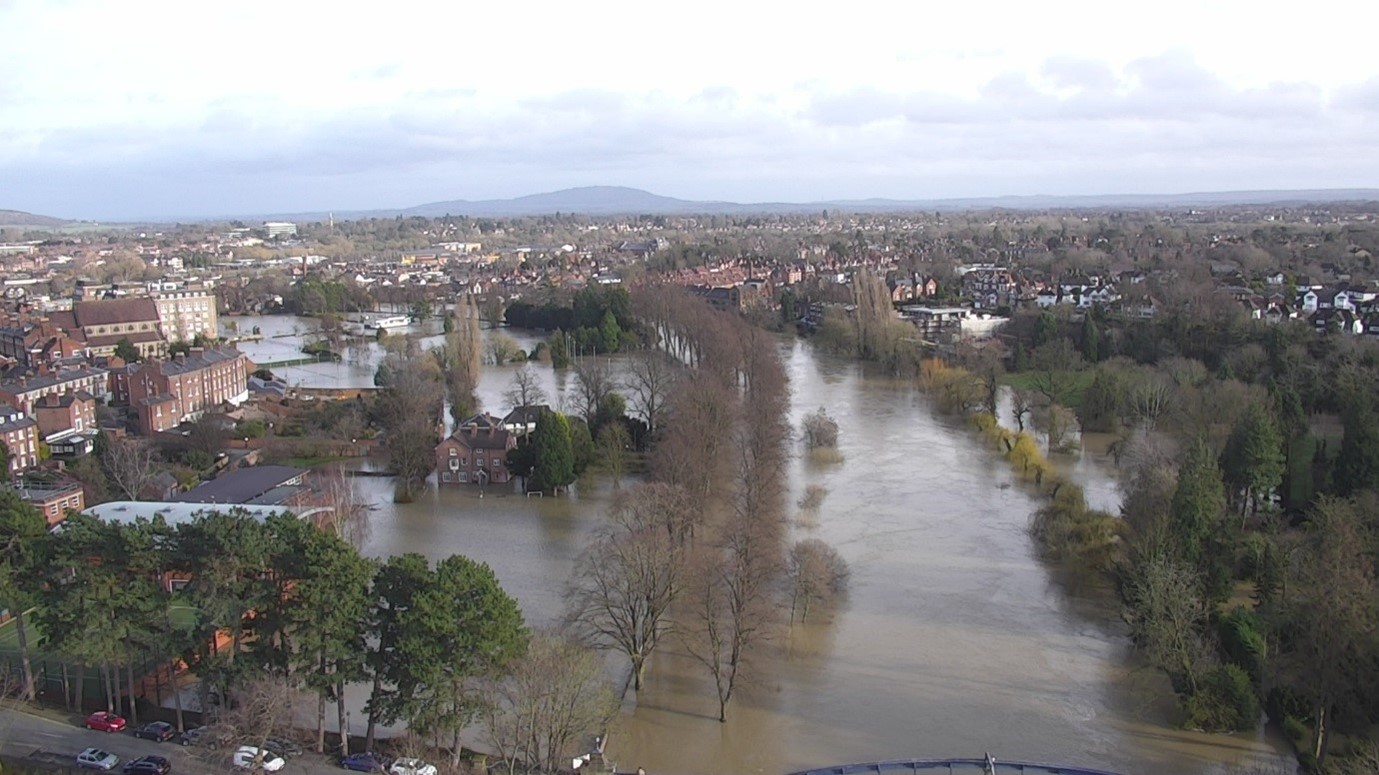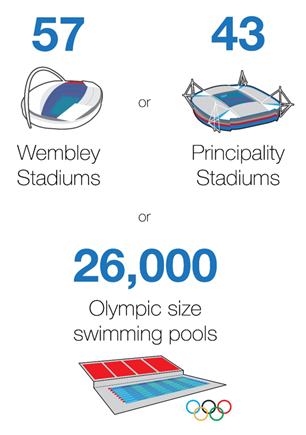Severn Valley Water Management Scheme
Overview
Page created December 2020. Last updated 19 September 2024





Website Launch – 19 September 2024:
The Severn Valley Water Management Scheme has a new website. Please access the new Severn Valley Water Management Scheme website where you will be able to find information and updates on the scheme.”
Consultation Results
Here are the results of the Severn Valley Water Management Scheme Sustainability Appraisal Scoping Report Consultation, that ran from 9 April to 21 May 2024.
We will also be launching a new website in September, which will provide updates on all of our upcoming engagement with communities across Powys and Shropshire. We will share the website link to this page once it is live; please keep an eye on the website for more information.
Introduction
The River Severn forms an integral part of life for those who live and work around it. It provides benefits and opportunities for wildlife, transport and recreation, as well as water for farming and community uses.
However, those living near the River Severn will also know of the long history of flooding during periods of high rainfall. Conversely, during extended periods of dry weather, exceptionally low river flows lead to low groundwater and reservoir levels placing pressure on wildlife, the environment, and water supplies.
As a result of these environmental stresses, the Environment Agency and partners are exploring opportunities to make the Severn a more vibrant and resilient river catchment, where local economies prosper, and communities and natural assets thrive for current and future generations. The proposed approach has received support from Welsh Government and the Department for Environment, Food and Rural Affairs (Defra) providing a firm basis from which the project can now progress.
A SVWMS Strategy will be produced, outlining the case for change and the proposed solutions to better manage water in the catchment. To support that Strategy we have already undertaken work to better understand the scale of nature-based and engineered interventions that might be required to enable effective water management across the River Severn, upstream of Shrewsbury (an area of 2,500 Km2 across England and Wales).
That work has supported us in securing funding for the next stage of Strategy development and will provide the basis for a comprehensive engagement effort with communities and partners that will help us understand local requirements as we work collaboratively to shape an outline programme of interventions.

A Cross-Border Collaboration
The SVWMS is being led by a core Partnership of the Environment Agency, Natural Resource Wales, Shropshire Council and Powys County Council as the primary risk management authorities operating across the Upper Severn Catchment.
The scheme is also actively supported by a whole range of other partners from across the River Severn geography; the River Severn Partnership (RSP). The RSP is a pioneering and transformational partnership bringing together multiple organisations, resources and skills to drive resilient and sustainable futures along Britain’s longest river network.
In addition, a number of expert consultancy teams are providing critical contributions, with Arup providing design and strategy development input under the Environment Agency’s Collaborative Delivery Framework.
Why is the SVWMS Strategy Needed?
Significant flooding of the River Severn in recent decades has caused damage to homes and businesses, impacted local infrastructure and disrupted travel. During the winter flooding of 2019 and 2020, Environment Agency flood risk management assets and schemes prevented 14,500 homes from being flooded, however approximately 1,600 homes were flooded across the catchment.
Conversely, recent periods of prolonged dry weather have resulted in measures being implemented to minimise the damaging effects on communities and the environment from low water flows. In 2022, the upper Severn catchment went from winter flooding conditions through to formal drought status within the space of 8 months, with groundwater and reservoir stores being used to support the people and wildlife who depend on the water supply provided by the Severn.
These extremes of weather are becoming more frequent therefore the Severn Valley’s communities and the natural environment need to become more resilient in the long term.
In response to the winter 2019/20 flooding, £10 million of funding was awarded to investigate a long-term, holistic water management scheme. A further £4.5 million was provided to support smaller projects within the Severn Valley area to help support local issues, begin building long term resilience and to enable the testing of key concepts and ideas that will be needed if future delivery of the SVWMS is to be successful.
 Initial river catchment modelling and hydrology assessments (based on future forecasts and witnessed flood events) has enabled us to determine the scale of additional flood storage that is required across the upper Severn catchment in order to better manage flood events. The adjacent graphic provides the summary outcome of those preliminary assessments and demonstrates the sheer scale of activity that is needed to support a more climate resilient catchment. To provide resilience to those communities regularly affected by flooding we need to store the equivalent of 65 billion litres of water during times of flood.
Initial river catchment modelling and hydrology assessments (based on future forecasts and witnessed flood events) has enabled us to determine the scale of additional flood storage that is required across the upper Severn catchment in order to better manage flood events. The adjacent graphic provides the summary outcome of those preliminary assessments and demonstrates the sheer scale of activity that is needed to support a more climate resilient catchment. To provide resilience to those communities regularly affected by flooding we need to store the equivalent of 65 billion litres of water during times of flood.
It is important to note that the volume of water outlined here will only be held back during times of high river flows within the catchment, but it still poses a considerable challenge.
How Will We Look to Do That?
The SVWMS is adopting a regenerative approach, meaning that interventions will seek to positively contribute to addressing the climate crisis and halting biodiversity decline, whilst also providing significant flood risk benefits. Working in tune with natural systems, through the use of Nature-based solutions (NbS) is critical to achieving this.
The SVWMS aims to devise an innovative and nature-positive programme, bringing together the best of both NbS and traditional engineering approaches. This will provide sustainable outcomes that are specific to each location and will deliver real value for investors and partners, local communities and the natural environment.
What does Nature-based Solutions mean?
Nature-based Solutions (NbS) is a term used to describe a range of techniques that increase our resilience to climate impacts, while simultaneously supporting the regeneration of ecosystems. Such impacts include flooding, resulting from more frequent and intense storms and from overuse of natural resources. NbS are most effective when delivered at scale and can be used to compliment more traditional engineered solutions to maximise the benefits delivered.
Working with partners and communities, we will investigate interventions including engineered solutions such as the construction of flood storage areas and embankments; natural flood risk management measures that slow the flow of water upstream such as tree planting or the creation of leaky dams; alternative farming and land management practices and other enhanced storage options across the catchment.
We are already working closely with a number of partners to consider how we might maximise opportunities through this integrated approach to water management. Working alongside Severn Trent Water and Water Resources West, as well as environmental groups such the Wildlife Trust and Rivers Trust, we are considering new approaches to ensure that the project not only reduces flood risk but also contributes towards longer term water availability and supports biodiversity, habitat recovery and climate resilience
If we have not spoken to you yet but you feel your organisation/group would be interested or could help in developing this strategy, please do contact us to discuss your views and suggestions. If you have any further questions or comments, please contact our Public Liaison Officer through the contact details provided on the top right-hand side of this page. We may not be able to respond straight away, but please rest assured all views will be considered as the project progresses.
Proving the Concept: The Demonstrator Programme
Alongside the SVWMS, Defra has also funded a programme of Demonstrator projects. Whilst not delivering on behalf of the SVWMS, these projects are being delivered across the Upper Severn catchment and provide an opportunity to both showcase nature-based solutions in action, as well as test new concepts and research ideas that will support the longer-term approach to water management at a catchment scale.
The focus of each of these projects is on the delivery of natural flood management techniques. The projects will be delivered over the next three years (up to March 2027) and look to provide enhanced flood risk resilience to local communities, while also delivering wider environmental, social, and economic benefits.
It is anticipated that the Demonstrator Programme will deliver 108 hectares of improved habitat and 11.5 kilometres of improved river habitat. In addition, and most importantly, the programme will deliver a series of tools, frameworks, and exemplar sites considering new approaches in –
|
Green Finance |
Farm Scale Economics |
|
Peatland Restoration and Paludiculture |
Sustainable Urban Water Management |
|
The Green Skills Agenda |
Digital Tools and Technologies |
Our Programme: Making the Vision a Reality
Delivering the SVWMS is a long-term solution to sustainable water management across the catchment. Achieving our vision will be a complex journey. Right now, we’re at the beginning of that journey as we set to identify, develop and test options in collaboration with partners and communities.
Our vision aligns with key policy across Wales and England and beyond that provides a great opportunity for economic growth at a local, regional and national level but new approaches are required to deliver against a challenging climate and economic back drop.
What this project and the vision it seeks to deliver could achieve is significant for communities, businesses and the natural environment and could be a blueprint for water management across the UK.
Some sources of funding are available, but more investment is required if we are to achieve the transformative change needed at this scale. It is going to take time, effort and innovative collaborations to achieve this.
We look forward to developing and delivering this vision together.
How to get involved
In Spring 2024 we will begin a dedicated programme of engagement with communities across the catchment. This process started with the initial consultation, which ran from 9 April - 21 May 2024.
If you have any questions in the meantime, please contact either:
svwms@environment-agency.gov.uk
or
CynllunRheoliDwrDyffrynHafren@cyfoethnaturiolcymru.gov.uk
SevernValleyWaterManagementScheme@naturalresourceswales.gov.uk
Frequently Asked Questions (FAQs)
We have produced an FAQ document for this scheme, which can be found in 'related documents', answering most of the questions we have received to date. This is available at the bottom of this page. This document will be added to and updated as the scheme progresses, so please continue to refer to the FAQs if you have any questions.
Give us your views
Keeping you informed and talking with you is very important to us and we will continue to provide updates to you through this website.
Throughout the development of the scheme you will have the opportunity to share vital local knowledge, as well as your ideas for the future of the River Severn.
Please keep visiting this page as we will be updating it regularly. This page will be open to the public throughout the lifetime of the project. If you want to share your views, please contact our Public Liaison Officer, who's details are on the top right hand side of this page.
You can follow us on Twitter too at @EnvAgencyMids as we will be tweeting about the work we are doing on this scheme.
Audiences
- Recreational and commercial river users
- Fishing clubs and representative associations
- Members of the public with an interest in the river, the species and conservation
- Businesses
- Charities
- Statutory organisations
- NGOs
- Members of the public
- Elected representatives, including MPs
- Local councils
- Academics
- All water abstractors
- Environment Agency customers
- IDBs
- Local authorities
- District and parish councils
- Environmental bodies
- Land owners
- Farming associations
- Drainage associations
- RFCCs
- Elected representatives, including MPs
- Water companies
- Members of the public
- Recreational and commercial river users
- Community groups
- Flood action groups
- Members of the public
- Community groups
- Non-governmental organisations with an interest in environmental issues
- Environment Agency colleagues
- Lead Local Flood Authorities
- Local Risk Management Authorities
- Flood Resilience Forums
- Members of the public
- Town and parish councils
- Regional Flood and Coastal Committees
- Internal Drainage Boards
- Engagement specialists/operational staff in Natural Resources Wales, local authorities and other risk management authorities
Interests
- Flood management
- Water resources
- Specific projects, issues, or activity pages

Share
Share on Twitter Share on Facebook